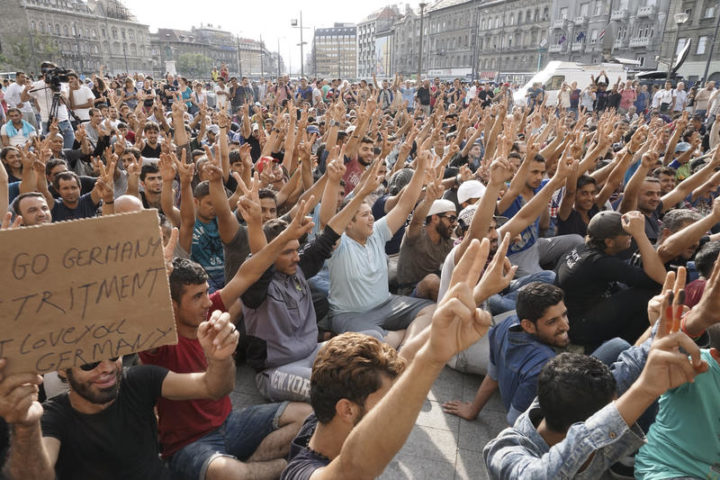WHO Regional Office for Europe
A new publication highlights the importance of addressing the needs of refugees and migrants when preparing for or responding to the COVID-19 pandemic. Refugees and migrants, particularly those who are displaced and/or living in camps and camp-like settings, are faced with specific challenges and vulnerabilities that must be taken into consideration when planning for readiness and response operations.
“If during this pandemic we leave behind the most vulnerable, we fail not only them, but all of us. COVID-19 is challenging us as a community, and we must answer as one,” commented Dr Santino Severoni, Special Adviser on Health and Migration and Director ad interim of the Division of Health Systems and Public Health at WHO/Europe.
“We strongly emphasize the need for inclusive national public health measures to ensure migrants and refugees have the same access to services as the resident population, in a culturally sensitive way.”
The new report, entitled “Interim guidance: scaling-up COVID-19 outbreak readiness and response operations in humanitarian situations, including camps and camp-like settings”, was jointly developed by the International Federation of Red Cross and Red Crescent Societies (IFRC), the International Organization for Migration (IOM), the United Nations High Commissioner for Refugees (UNHCR) and WHO, and published by the Inter-Agency Standing Committee (IASC).
In line with European and global guidance, it spells out the following.
*Public health responses must consider health risks associated with movement, displacement, overcrowding, poor nutritional and health status, and physical and mental stress and deprivation due to lack of housing, food and clean water among refugees and migrants.
- States must prevent stigmatization and discrimination of refugees and migrants due to measures implemented during COVID-19 response operations.
- States must provide refugees and migrants, irrespective of their legal status, access to health care, other services, and culturally and linguistically sensitive information on how to prevent being infected and infecting others, and must consider social determinants such as discrimination and criminalization in their response operations.
- Refugees and migrants must be involved in the design of readiness and response plans, policies and strategies, and be given the necessary assurances to be able to fully participate in public health measures.
- “Effective communication to counter misperceptions about the role of refugees and migrants is vital in the COVID-19 pandemic,” continues Dr Severoni.
“Messages should make clear that migrants or refugees do not present increased COVID-19 risks to countries in comparison to other international travellers, but they are a more vulnerable group that needs special support – particularly access to preventive and care services,” he concludes.










